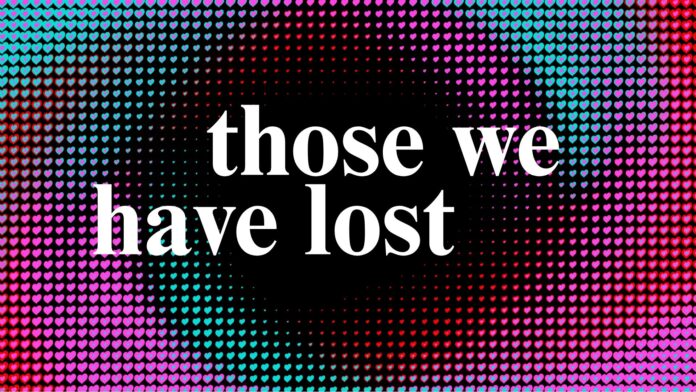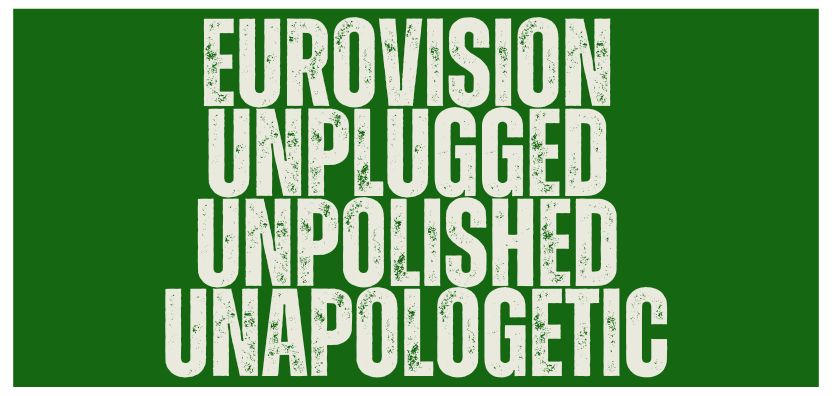
With the grand final for 2025 just a few hours away, it’s time for us to remember those who walked on the Eurovision Song Contest stage before, sometimes Eurovision winners, and who (since the last Contest) are sadly no longer with us. What is Eurovision if not one big family?
Colin Gibb was the longest-standing member of British pop band Black Lace, who represented the UK at the 1979 Eurovision Song Contest with the song Mary Ann, finishing in seventh place. After Eurovision, Black Lace achieved greater fame with their 1984 novelty hit “Agadoo,” which reached number two in the UK charts, and other party favourites like “Do the Conga” and “Superman”. Gibb had recently announced his retirement and was planning to move to Spain with his wife before his unexpected death at age 70 on 2 June 2024.
Françoise Hardy died on 11 June 2024, aged 80. She represented Monaco in the 1963 Eurovision Song Contest, coming fifth with L’amour s’en va. Hardy was a pioneering French singer-songwriter and fashion icon, central to the yé-yé movement. Her Eurovision entry, which she wrote herself, became a hit in several countries. Post-Eurovision, she became one of France’s most influential pop stars, releasing over 20 albums, acting in films, and later publishing books.
Ekaterina Shklyaeva represented: Russia as part of Buranovskiye Babushki in 2012, performing ‘Party for everybody’ and finishing in second place in Baku. After the contest, the ‘grannies’ continued to perform folk music and charity work. Shklyaeva remained a cherished figure in Russian popular culture until her passing at 86.
Göran Fristorp was part of the Swedish duo Nova (called Malta prior to Eurovision) with Claes af Geijerstam. In 1973, they took fifth place with ‘You’re Summer’, performed with ‘The Dolls’. Fristorp went on to pursue a prolific solo career, releasing albums in Sweden and Norway, and interpreting Swedish poets’ works. He died at 76 after a battle with liver cancer on 3 September last year.
Nenad Nakić was the bassist in Riva who sang ‘Rock me’ in the 1989 Eurovision Song Contest, winning for Yugoslavia. After Eurovision, he remained active in Croatian music, organising festivals and supporting local artists.
Martin Lee was part of another winning act. This time from the UK, he was the lead vocalist and guitarist for Brotherhood of Man who won in 1979 with Save your kisses for me. The song reached number one in more than 30 countries and became one of the best-selling Eurovision singles in history. Post-Eurovision, Brotherhood of Man enjoyed further success with hits including “Angelo,” “Figaro,” and “United We Stand,” releasing a total of 18 albums before their retirement in 2020. Lee died of heart failure at age 77 on 29 September 2024, after a short illness and was survived by his wife Sandra Stevens (also a member of Brotherhood of Man) and his daughter.
Emre Tukur represented: Turkey as keyboardist for Klips ve Onlar in 1986 with the ninth-placed song, Halley. After the contest, Tukur became known as an accomplished pianist and music teacher in Turkey. He attempted to represent Turkey at Eurovision again in 1988 and 1989. He died at the age of 55 in November last year.
Joël Prévost was a French singer who represented France at Eurovision 1978 in Paris, singing Il y aura toujours des violons. He finished in third place out of 20 entries. Prévost’s n the years after Eurovision, Joël Prévost remained active as a performer, touring Europe and Africa. By the 2010s he had retired from public performing, settling into private life after 2017. His death was announced some months after he passed away in November 2024 at the age of 74.
Dickie Rock was an Irish singer and a leading figure of Ireland’s 1960s showband era. He represented Ireland at Eurovision 1966 in Luxembourg with the ballad “Come Back to Stay,” finishing in joint fourth place. Already a big star in Ireland, his popularity endured until he retired in 2021 after struggling with hearing. He died on 6 December 2024 at the age of 88.
Selami Karaibrahimgil was a Turkish musician and songwriter who represented Turkey at Eurovision 1981, as a member of the Modern Folk Trio, a folk-pop ensemble that, together with singer Ayşegül Aldinç, performed Dönme Dolap at the contest in Dublin, coming 18th. After Eurovision, Selami continued to perform and work in music production in Turkey, and he remained respected as part of the generation that first brought Turkey to Eurovision in the 1970s and ’80s. He passed away on 28 December 2024 at the age of 80
Joe Grech was a pioneer of Maltese pop music, best known for being the first artist ever to represent Malta in the Eurovision Song Contest. A popular singer in Malta since the 1960s, Grech took the Eurovision stage in Dublin with the Maltese-language song Marija l-Maltija, which ultimately ended in last place. Despite the disappointing result, he was celebrated at home as a trailblazer. Grech continued a successful career afterwards, touring internationally. In recognition of his contributions, he was awarded the Medal for Service to the Republic of Malta in 2019 and even made a guest appearance in Malta’s 2022 Eurovision selection show to commemorate 50 years of Malta’s participation. Joe died in late December 2024 at the age of 90.
Clodagh Rodgers was a singer from Northern Ireland who became a household name in the UK during the late 1960s and 1970s. She represented the United Kingdom at Eurovision 1971, held in Dublin amid the Troubles, performing the upbeat song Jack in the Box. Rodgers’ entry earned fourth place at the contest. After taking part, she remained a familiar face on UK television variety shows, and continued recording music and touring, and she later made stage appearances, solidifying her status as a versatile entertainer. Rodgers largely stepped back from the spotlight in later years to focus on family. She passed away in April 2025 at age 78, after battling a long-term illness for three years.
Helga Wéber was a Hungarian singer who twice performed on the Eurovision stage as a backing vocalist. Trained as a singer and also working professionally as a lawyer, Helga showcased her vocal talents in Hungary’s entries for 2012 and 2013. In 2012, she provided backing vocals for Compact Disco in their performance of “Sound of Our Hearts” in Baku, and the following year she sang harmonies behind ByeAlex on the song “Kedvesem” in Malmö. Outside of Eurovision, Wéber continued to sing in choirs and musical groups, all while practicing law. Helga passed away in April 2025 at the age of 39 after a long illness.





